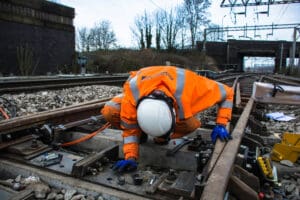
West coast main line faces decade-long closures in multi-billion-pound overhaul

Britain’s busiest railway route, the west coast main line, is set for a once-in-a-generation upgrade that will bring significant disruptions for up to ten years.
Network Rail plans to replace more than 150 miles of ageing overhead wires—originally installed in the 1970s—along with extensive signal and track renewals. Industry insiders warn the resulting closures will severely affect passengers and businesses, with some sections of the line shut down for weeks each year from 2026 onwards.
According to planning documents, engineers will take full possession of the track for three two-week blocks in 2026, 2027 and 2028, affecting the main artery that connects Scotland and England. Similar “blockades” are expected to follow over much of the coming decade between Crewe and Gretna, impacting Warrington Bank Quay, Wigan, Preston, Lancaster, Oxenholme, Penrith and Carlisle. While bus replacements will be put in place, transport planners fear the knock-on effect across the UK could be huge, prompting some passengers to opt for flights rather than trains.
One UK rail source described the scale of planned disruption as “unprecedented in the past 25 years,” but stressed that the works, known in the industry as “Trilink,” are critical to the long-term future of the line. The full upgrade covers 155 miles of overhead wires, 140 miles of track and the renewal of 2,000 signalling units. Preliminary cost estimates approach £3.84 billion, spread over 10 to 15 years.
Avanti West Coast, which runs services from London to Scotland, carried 32 million passengers last year and expects substantial timetable changes, although the company says it is too early to confirm precise details. Analysts note that scrapped extensions of HS2, once seen as key to easing congestion on the west coast main line, mean this upgrade work is unavoidable if the line is to remain fit for purpose.
Scottish business leaders, including Stuart Patrick, chief executive of Glasgow Chamber of Commerce, argue that the project highlights the UK’s struggle with long-term infrastructure planning. While acknowledging the necessity of renewing critical assets, he emphasises the need for a strategic vision that encourages a shift from air to rail: “It is increasingly difficult to see how we will achieve that without adding capacity on cross-border services.”
Liz Cameron, director of Scottish Chambers of Commerce, shares concerns about the impact on travellers but recognises the upgrade’s importance. “We acknowledge that extensive work will inevitably lead to disruptions, but it is crucial to minimise short-term inconvenience,” she said. Network Rail insists it is working closely with train operators and wider industry stakeholders to plan the closures and manage the economic fallout.
The west coast main line was last upgraded between 1998 and 2009—a drawn-out process marked by political rows and soaring costs. Lessons from that period are expected to inform this major overhaul, but with multiple years of partial closures confirmed and more in the pipeline, millions of rail users will be forced to navigate a decade of lengthy detours and timetable changes.
Read more:
West coast main line faces decade-long closures in multi-billion-pound overhaul
